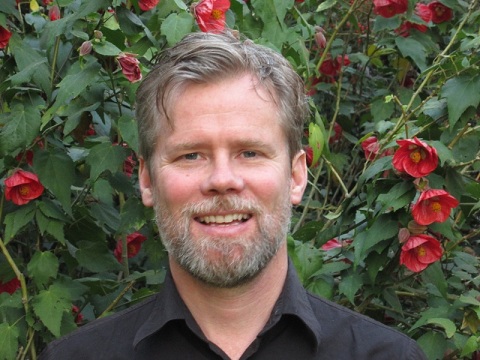Dominic Muren, TED Fellow and open-source manufacturing entrepreneur, explains why electronics recycling is energy stupid. And also why open hardware and modular design is energy smart.
We've talked about open hardware before here and here, but not the energy saving advantages of it. We've focused more on the democratization of manufacturing. But in the above video, Muren argues that open hardware is also as a vastly superior manufacturing strategy from an energy conservation standpoint and therefore is more appropriate in an age of global warming and energy decline.
And while he doesn't use the term, the crux of his argument hinges on the concept of embodied energy or emergy. Emergy refers to all the energy used in the making of an object, from design through distribution. Electronics devices like the iPhone have extremely high emergy because of the resource intensiveness and engineering complexity of electronics manufacturing.
Just imagine the tons of material and millions of hours of human effort that has been invested in the design and manufacture of the iPhone, its software, and all its components. And not just for the existing version – also all the devices, software, and components that led up to the most recent manifestation. This is a knowledge base that's been built up over decades and perhaps even centuries. The iPhone rests on the shoulders of innumerable innovations in metallurgy, software architecture, and circuit design.
When you hold an iPhone, you're holding something with tremendous embodied energy. Therefore, it's extremely wasteful to simply melt them down to their raw materials at end of life. Instead, it makes more sense from an emergy perspective to design such complex devices for modularity and reuse modular components in new devices. This calls for a platform approach, which is evident in the product line of Bug Labs.
This is a new perspective for me because I previously only thought of sharing and reuse in terms of how they reduce demand for new objects. Sharing and reuse also conserve the energy that has already been invested in an object and the energy that would be needed to dispose and recycle it.
Below is a presentation Muren gave at Dorkbot Seattle's FabLab last February about the rapidly evolving open hardware ecosystem. The electronics industry of the future is likely to emerge from this primordial soup.
Teaser image credit: opensourceway









